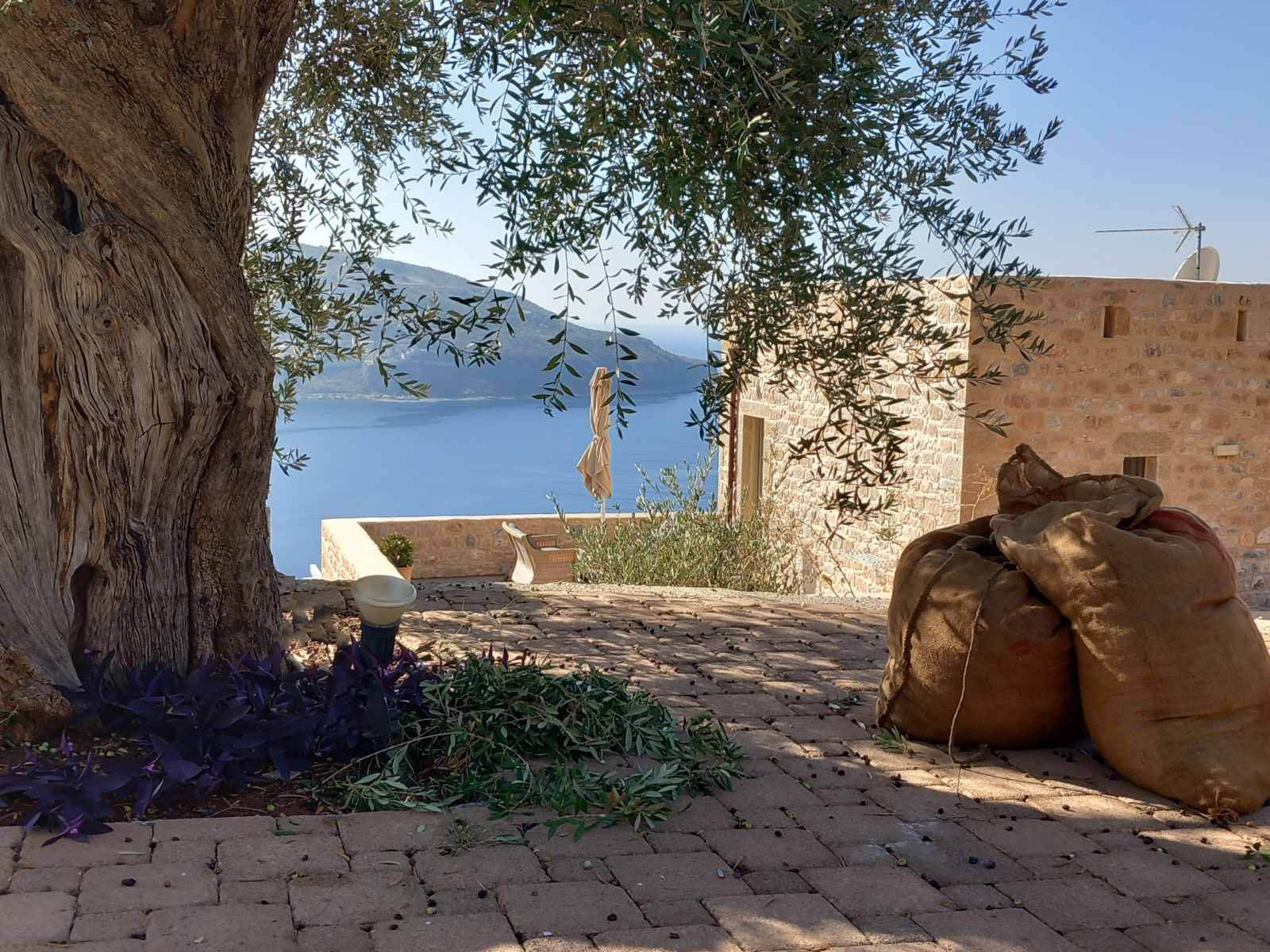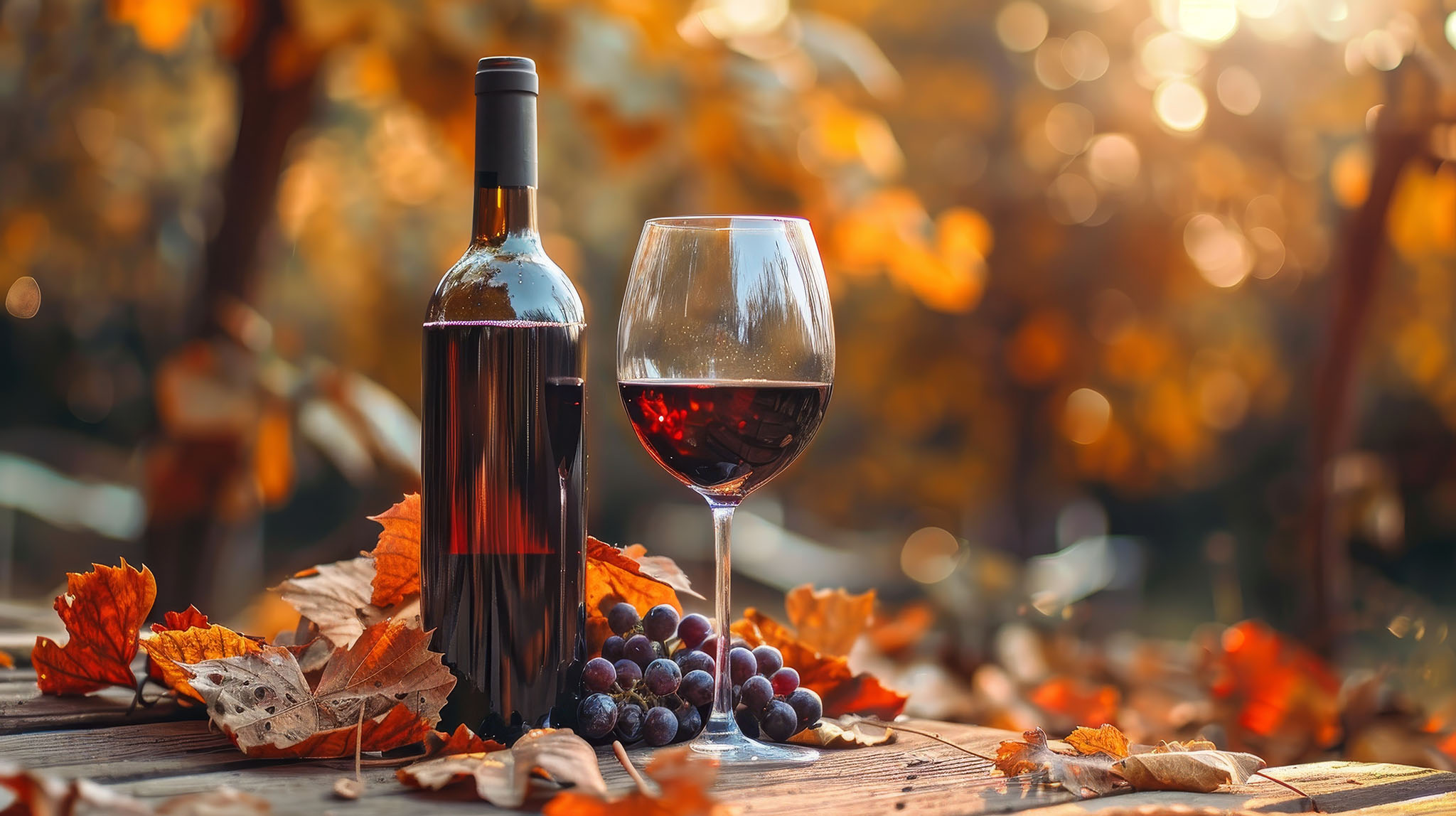
Mani is renowned not only for its unparalleled beauty, with its crystal-clear blue-green waters, virgin wild nature, picturesque stone-built towers, and rich history, but also for its olive trees and the exceptional extra virgin olive oil we produce.
The blessed olive tree, resilient against the northern winds and cold, rooting in the hard stone of Mani, is responsible for what Homer called "liquid gold". This tree is one of the defining symbols of the region, often leading to Mani being referred to as the "Land of the Olive"!
The olive harvest, also known as the Olive Gathering, and its traditions
as recalled from the childhood memories of Mrs. Panagiota, the owner of Akrolithi:
"From mid-October, I fondly remember my parents and grandmothers preparing for the harvest - laying out the olive nets, combs, saws, and sacks. We would start early in the morning, often carrying the equipment on our backs due to the lack of accessible roads to the fields. We carefully spread the nets around each tree, whether laden with many fruits or just a few.
The olives were gently harvested using combs or our hands, ensuring not to harm the fruits, which would yield our precious oil. It was common for groups of friends or families to help each other in the fields, racing against time to beat the onset of bad weather.
By noon, exhausted, we'd take a break, sitting on the olive nets and sharing simple meals of bread, cheese, and oil, giving us the strength to continue until dusk. As children, we spent most of our time playing in the fields, largely unconcerned with the ongoing harvesting activities or even the meals.
In the field meals, we also owe the origin of the well-known salad of Mani, made with oranges cut into pieces, abundant 'afrina' (the salt we had carefully gathered from the rocks during summer), onions, sygklino (a smoked pork specialty of the region), and, of course, olive oil.
At day's end, the harvested olives were gathered into sacks and taken to the local mill for pressing. We stored the oil in large jars in our basements to protect it from temperature extremes, an essential staple in every household.
I also remember, in the days leading up to Christmas, after the harvest was done, we used the fresh oil to make the first sweets of the new year, like kourabiedes, melomakarona, and the famous Maniot lalangia. For Christopsomo, the special Christmas bread, I vividly recall my mother preparing the dough and then frying a cross of dough in oil to place atop the bread. According to tradition, and a belief dear to us, if the cross tilted to the right after frying, it was a sign that the upcoming year would 'go right,' meaning it would be prosperous and favorable."
Experience the Authentic Olive Tradition at Akrolithi
Today, the olive harvesting process retains its essence but has evolved into a more streamlined and modern practice. While it may lack the nostalgic rituals of the past, it continues to honor the sacred olive tree and upholds our cherished gastronomic traditions.
Within the grounds of Akrolithi, our guests have the unique opportunity to closely observe the ancient olive trees of our forefathers. These venerable trees, left untouched in our careful design of the outdoor spaces, still generously bestow their precious golden-green oil. The extra virgin olive oil, along with the olives themselves, are key components of our award-winning 'Greek Breakfast', embodying the essence of tradition and quality.
In tribute to the enduring connection between the Olive and our land, we have named one of the luxury suites of the Akrolithi Boutique Hotel in its honor. Each corner of the suite reflects this legacy, while guests are treated to a panoramic view of the breathtaking Oitylo Bay.





